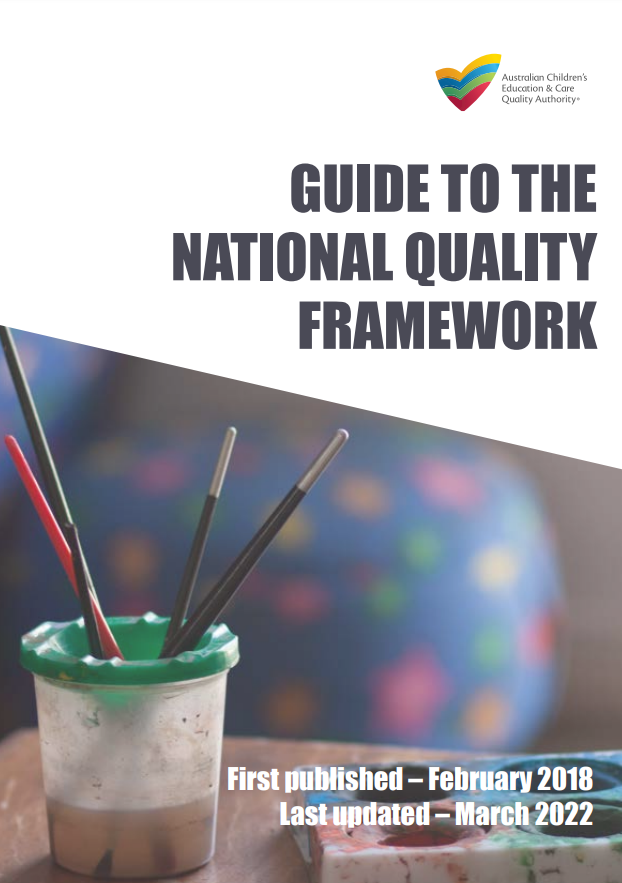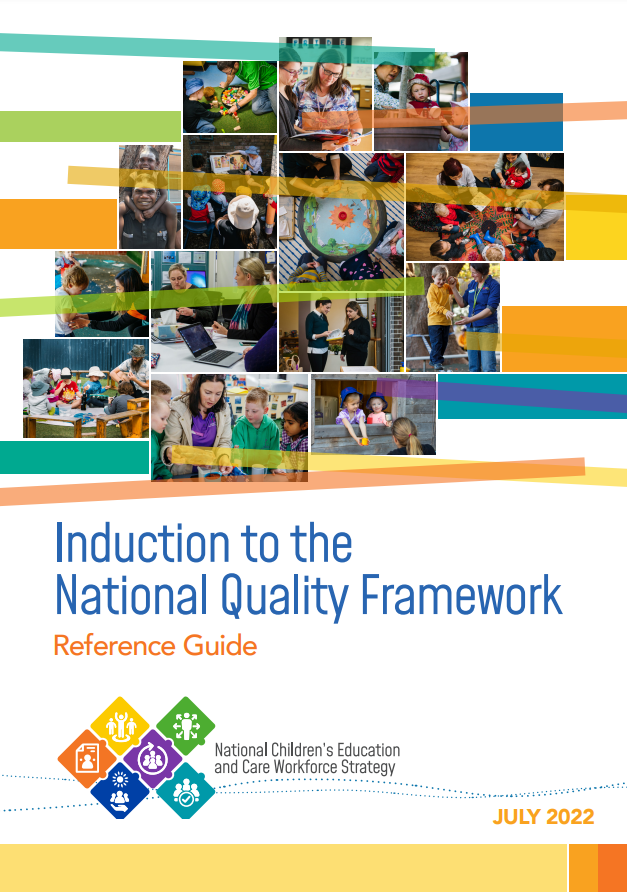The National Quality Framework (NQF) introduced a new quality standard in 2012 to improve education and care across long day care, family day care, preschool/kindergarten, and outside school hours care services.3
The NQF includes:
- National Law and National Regulations
- National Quality Standard
- Assessment and Quality Rating Process
- National Learning Frameworks.
The National Quality Framework comprises 7 quality areas:
| QA1 | Educational program and practice |
| QA2 | Children's health and safety |
| QA3 | Physical environment |
| QA4 | Staffing arrangements |
| QA5 | Relationships with children |
| QA6 | Collaborative partnerships with families and communities |
| QA7 | Governance and leadership |
Benefits for children and families
Research shows that quality education and care early in life leads to better health, education and employment outcomes later in life. The early years are critical for establishing self-esteem, resilience, healthy growth and capacity to learn. Quality education and care shapes every child’s future and lays the foundation for development and learning.
The major benefits for parents and children include:
- improved educator to child ratios, ensuring children have greater individual care and attention for children
- educators with increased skills and qualifications
- better support for children’s learning and development through approved learning frameworks
- consistent, transparent information on educators, providers and services in the national registers.
This almost 9-minute video developed by ACECQA will give you an overview of the NQF, explain the role of ACECQA and will give you an insight into the sector:

The Guide to the National Quality Framework (NQF) is designed to help education and care providers, educators and authorised officers understand and apply the requirements of the NQF. The Guide is not legal advice and should be read in conjunction with the National Law and Regulations, which take precedence over any guidance.
The Guide provides information for all types of services in all states and territories. It is not intended to be read from cover to cover, nor is all the information within it relevant to every service. Rather, it has been designed as a comprehensive reference document to be referred to when seeking guidance on particular matters such as applications and approvals, operational requirements, and the National Quality Standard.4
You will learn in detail about the NQF and its implementation in the next modules.

The Induction to the NQF Reference Guide can support you to access further resources and information to support you in role as an educator. The better you understand the sector, the more equipped you will be to support quality outcomes for children and their families.
The Induction into the NQF Reference Guide is intended for new educators who have entered the children's education and care sector. The guide can also be used by current educators that would like to refresh their knowledge on available resources to support them in their roles. You can also share this guide with your employer.
You can use this guide to take notes as you complete the eLearning modules.

Before you embark on your new journey exploring the world of early education and care, check out this interactive eLearning module that ACECQA has created to help explain the NQF (National Quality Framework).
NQF Induction 1: Introduction to the children's education and care sector
NQF Inducion 2: Overview of the NQF

